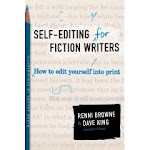Janet, you're a talented writer. The writing itself didn't require many corrections. You used dialogue, attributions and beats of action nicely. You've done well to establish a goal and motivation for your characters early on. I also see that these two girls are going to create quite a few laughs together. They're a fun pair. Humor is important to MG (middle grade) readers.
Now, let's look at what needs work:
As for the opening, it needs a stronger hook. Also (I had the privilege of reading the synopsis), because Dudley's spirit helps guide the girls throughout the story, I'd implement that right away. In fact, that could be a part of your hook. Something unusual like that would certainly draw your readers in and encourage them to turn the page.
One major thing concerns me about this opening. I'm afraid the idea of finding secrets in the attic is a bit cliché. A lot of writers do that. So, consider trying something different. I'm thinking they could discover a secret room in her bedroom, or someplace else. She could find a loose panel in her closet, or something like that. Anything but the attic will work. I'm sorry to tell you this; it's just that the whole attic scenario is simply overused.
Leave mom out of the story as much as possible. Parents aren't "allowed to help" the young characters in MG fiction. Consider finding another way (something creative and unique) for them to learn the story about their ancestors. Maybe they can ask leading questions to Mom. They could get tidbits of answers from her, and other answers from Dad—if he's in the picture. The parents could be helping without realizing they're helping. Also, the more secrets the children try to keep from the parents, the more intriguing it will be to your readers.
I'd also like for you to tighten the point of view (POV) of the main character, who I assume is Jan. What I mean by that is, bring in more interior monologue. You've done well with the five senses, and you have a good balance between action and dialogue. If you give us more of her thoughts, that'd help. But don’t add the kind of thoughts that are in first person and italicized. I'm talking the type of thoughts that are in third person and don't require italics. See in
The Master's Wall (final version), how that's handled. Nearly every thought David has is done in third person and is not italicized.
If you were to change the attic scene to somewhere else (let's use the closet for example), maybe you could have Dudley knock on the inside of the closet wall to get Jan's attention. Or, if that's too freaky . . . hmm, actually, I can't think of anything that doesn't come across too freaky (I was thinking of things like him scratching on the wall, etc). Freaky does sell. Hmm. Think on it. According to your synopsis, you've got caves and bats, and all kinds of freaky things happening, so Dudley knocking on a wall shouldn't hurt. Right? Anyone else have suggestions? Not just on what Dudley should do, but another exciting place to make this discovery other than the attic? We're open to them!
Below is a detailed edit. Take what works and ignore the rest. A special note to my followers: if you catch something that I missed, feel free to point it out. Since the track changes feature doesn't show up on here, I put my edits next to the text in red. Anything in green needs to be cut.
FAMILY TREASURE
Chapter One
“I can’t believe this,” Jan whispered, as she held the yellowed paper in her hand. The hot stale air of the attic brought sweat beads on her forehead and her bangs dripped with perspiration.
Boy, it's awfully hot in there for sweat to literally be dripping off her bangs. Feels a bit overdone and like she could literally wring them out. Consider having her bangs cling to the moisture on her forehead. Also, there's so much description of her sweat, it takes the focus off the letter in her hand. If you're going to add detailed description like this, always make sure its focus is on something significant. In this case, the letter.
Here's where this needs to be reformatted a half an inch on both sides. And be sure to put single quotation marks inside the double quotation marks: “
'I worry so about the chest Grandpa brought over from the home country. I fear if they spy the chest they may loot through it and destroy the contents. Have Dudley take it to safe keeping.
'”
New paragraph: Jan finished reading the letter and then stared out into the musty attic. “I wonder if Mom knows about this
. cut period, and replace with a question mark?”
Also, we need a stronger hook. A stronger opening sentence. See The Master's Wall, for an example of how that's done. Keep in mind, this is a totally different genre.
She looked (
over cut) at her cousin Sarah. “You picked the best time to come and visit. I just discovered a secret and you can help me solve it!” Jan wiped her forehead with her arm and eased the letter back into the envelope. “Sarah, did you hear me?” She cast an impatient glance toward the corner of the attic.
“What?” asked Sarah. “What did you say?”
“Come on. Didn’t you hear a word I said?” (Jan pulled Sarah
How far away was Sarah from Jan? Jan got from point A to point B awfully fast) from the old trunk where she was going through the contents.
“Wait. Let me put these old clothes back.” Sarah barely had time to toss the items back into the trunk as Jan pulled at her arm.
“You won’t believe this. Oh, shoot! I forgot the jelly jars. Could you get them?”
“Where are. . . ouch! I found them.”
This hunt for jelly jars is humorous. This is great for MG fiction. The following feels like a POV jump from Jan's head to Sarah's: Sarah rubbed her toe as she picked up the jars and carried them out of the attic. She limped down the old oak stairway to her aunt’s kitchen below. She looked at Jan and saw the yellowed envelop clasped in her hand.
“Mom! Mom!” Jan yelled as Sarah put down the box of jars. “Where could she be?” Come on, help me find her.” They searched each room of the old house, but her mother was nowhere to be found. They ran outside and looked for the family dog, King, in his favorite spot under the porch.
“King! Where are you boy?”
“Jan, get out from under the porch. There could be snakes curled up under there just waitin’ to strike out at you.”
“Oh, Sarah, you’re a scaredy cat. Besides, they won’t hide under the porch; they know King will chase ‘em out.” Jan dusted off her shorts and looked around the yard. “They’re both missing.” She pressed her lips together and looked at Sarah. “This is a case for the Country Cousins.”
“Country Cousins! Jan you read too many Nancy Drew books. Besides, I live in the city.”
“Not this summer you don’t. You’re my Country Cousin until Labor Day, and we have mysteries to solve.”
“This might be fun,” said Sarah as they walked back into the kitchen.
“Where is Mom? I have to show her this letter
,period”
said Jan. She Jan sat down to catch her breath.
“What letter? Let me see.” Sarah leaned across the table and reached for the envelope.
Jan clenched it against her chest. “Are we partners? Are you a member of The Country Cousins Detective Agency?”
“Yes, yes. I’ll be your partner. Now let me see the letter.
Cute. Where’d you find it? I didn’t see any old letters in the attic.”
“While you rummaged through the clothes in the trunk, I found this box of old books.” Jan raised her eyebrows and cocked her head (
in the air.
Feels like floating body parts.) “Look what fell out of one. This letter is dated April 1863. It’s addressed to
Add single quotation marks before and after the following quotes: My Dearest Anna and signed Your loving husband, Henry.”
Janet, you've captured the humor between the girls nicely. They'll make a fun pair of detectives. Well done!















 Tracy Ruckman is a full-time freelance writer, editor, and photographer. She offers full editing services through her company
Tracy Ruckman is a full-time freelance writer, editor, and photographer. She offers full editing services through her company 

